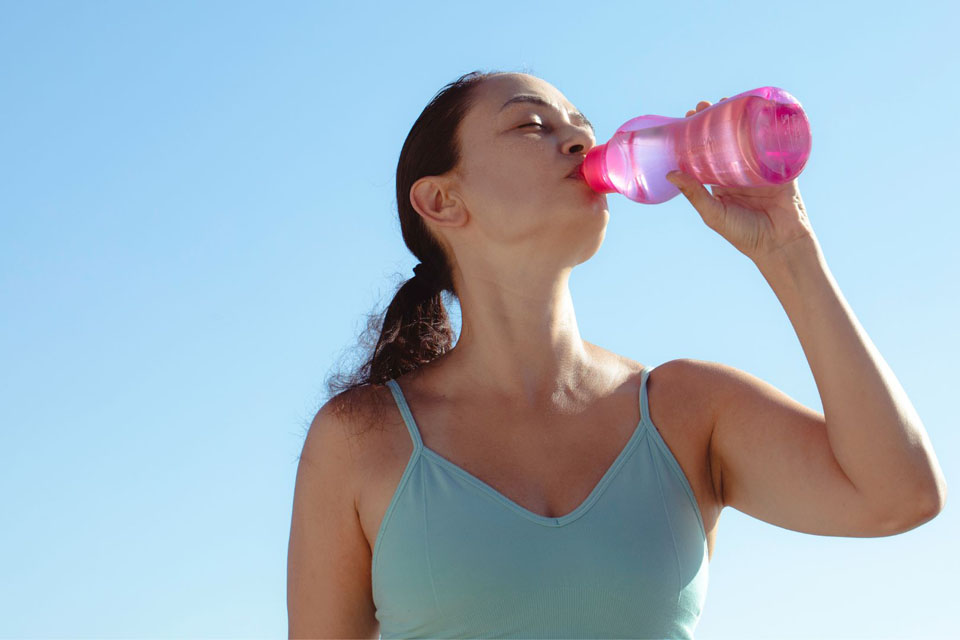The summer heat is not only uncomfortable but can also pose serious health risks. Prolonged high temperatures put extra strain on the body and, in extreme cases, can lead to heatstroke. Experts at HR-Pharma have gathered information on how to recognize this condition and what steps can be taken to prevent it, with special emphasis on adequate fluid intake, which is our most important protective measure.
What is heatstroke, and what are its symptoms?
Heatstroke occurs when the body’s temperature regulation is disrupted, causing the core body temperature to rise above 40°C (104 °F). The most common symptoms include headache, confusion, dizziness, redness, dry skin, nausea, muscle cramps, and even loss of consciousness. Since heatstroke is a life-threatening condition, immediate medical attention is required. It is especially dangerous for the elderly, young children, people with chronic illnesses, and those doing physical labor. Their bodies lose fluid reserves more quickly and are less efficient at cooling themselves.
Hydration: Your first line of defense
Proper fluid intake is the foundation of protection against heat. It is important not only to drink when thirsty but to do so regularly as a preventive measure. A daily intake of 2.5–3 liters of water is recommended, and even more during heat or physical exertion. Drinking water is especially important because sweetened, caffeinated, or alcoholic beverages tend to increase fluid loss. Children and the elderly often do not feel thirst in time, so conscious fluid replacement requires even greater attention in their cases.
Additional prevention tips
- Wear loose, light-colored clothing, a wide-brimmed hat, and sunglasses.
- Stay in shaded, cool places, especially between 11 a.m. and 3 p.m.
- Use cooling methods such as fans or air conditioning.
- Avoid physical activity during the hottest periods of the day.
During the summer months, it may be worthwhile to check your body’s fluid and electrolyte balance through laboratory testing. At HR-Pharma’s Szeged laboratory, basic tests such as sodium, potassium, chloride, and kidney function parameters are available, and their assessment can help prevent dehydration-related problems. This is especially recommended for the elderly and those with chronic illnesses.



